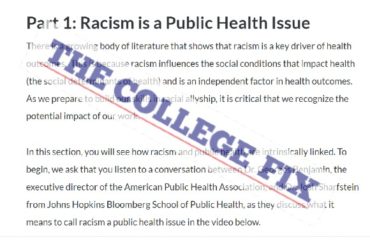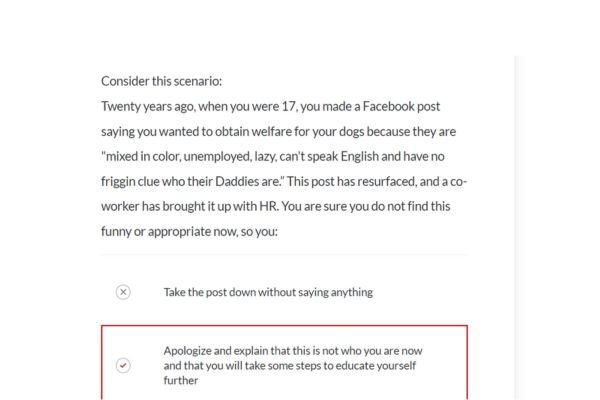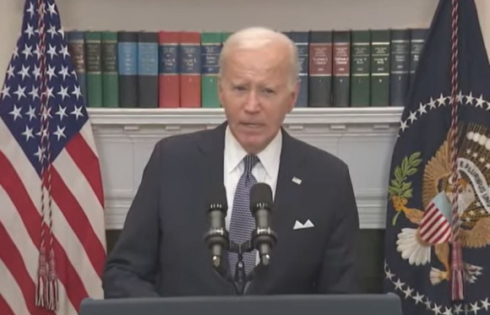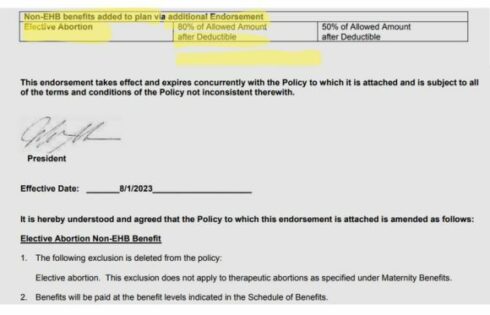
Enrollees will learn how to create an ‘anti-racism action plan’
Individuals who need help developing a “personalized, anti-racism action plan” and want to learn about “racial allyship” can now take a free course through Cornell University’s medical school. Academics developed the course with a grant from the university’s College of Veterinary Medicine.
Weill Cornell Medicine’s Center for Health Equity course on “racial allyship” will teach enrollees how to build “allyship skills.”
The training is not just confined to the five-hour course, according to the director of the center.
“We hope to see that people will form discussion groups during or after they complete the training to process the material and think more deeply about how as individuals, or as a group, they can apply allyship strategies in their personal or professional contexts,” Dr. Monika Safford told The College Fix via email.
She said health “inequities” are “pervasive…from infant mortality to maternal mortality to cancer and heart/stroke disease mortality.”
“While the way we have chosen to structure our society is a major influence on these inequities, there are numerous practices in the healthcare field that contribute, as do our own implicit biases as healthcare professionals,” Dr. Safford told The Fix.
“The course seeks to make learners aware of their own biases and teaches skills that can be used in any setting, including in the healthcare field,” she told The Fix.
Originally the course would be for “white allies” only, according to Lara Parilla, a co-director of the center.
However, “that changed after students of color provided insightful feedback,” Parilla stated in the news release for the new program. “For example, one said they appreciated learning about the role white allies can and should be playing. Another suggested the course be included in orientation for all incoming students, which is a pretty strong endorsement.”
The course includes four modules on “rethinking race and its effects on society,” “the fundamental attribution error,” “building and practicing allyship skills” and how to “create an action plan.”
MORE: CRT has infected veterinary schools, Cornell professor says
“This module will discuss what it means to call racism a public health issue, explore what isn’t taught in U.S. classrooms about the history of systemic racism in this country, and highlight the differences between authentic and performative allyship,” the first module states.
That section defines terms like “woke,” “cultural appropriation” and “racial disparity.”
A section on “allyship skills” has students watch a talk on white people fighting racism and also discusses a 2016 controversy when actor Chris Hemsworth apologized for wearing a Native American costume to a New Year’s Eve party.
“Allyship requires being open to feedback, constantly evolving your thinking, and embracing discomfort,” the module instructs students.
One training exercise tells students that they should apologize for a Facebook post from twenty years prior after a co-worker informed human resources of it.
“Twenty years ago, when you were 17, you made a Facebook post saying you wanted to obtain welfare for your dogs because they are ‘mixed in color, unemployed, lazy, can’t speak English and have no friggin clue who their Daddies are,” the scenario explains. “This post has resurfaced, and a co-worker has brought it up with HR. You are sure you do not find this funny or appropriate now, so you.”
The correct answer is to “Apologize and explain that this is not who you are now and that you will take some steps to educate yourself further.” Incorrect answers include “Take the post down without saying anything,” “ Explain to HR that it’s what everyone did back then” and “Move on with your life silently because you know in your heart that you meant no harm.”

“Being a good ally often means taking accountability for our actions that cause others to hurt and making an effort to educate ourselves on why those actions are hurtful,” the module states after users select the “correct” answer.
A subsequent lesson helps participants “Decenter Whiteness and prioritize marginalized voices.”
Good white allies should also “[b]ecome aware of ways to open up professional opportunities for your BIPOC colleagues or peers,” according to subsequent lessons.
“We sincerely hope the course provides people with an insightful education on the historical roots of racism, a better understanding of racial discrimination and actionable strategies for effective allyship,” Dr. Safford, the center’s director, said to conclude the news release.
MORE: University of California develops ‘anti-racism’ performance review
IMAGES: Cornell Center for Health Equity
Like The College Fix on Facebook / Follow us on Twitter





Please join the conversation about our stories on Facebook, Twitter, Instagram, Reddit, MeWe, Rumble, Gab, Minds and Gettr.